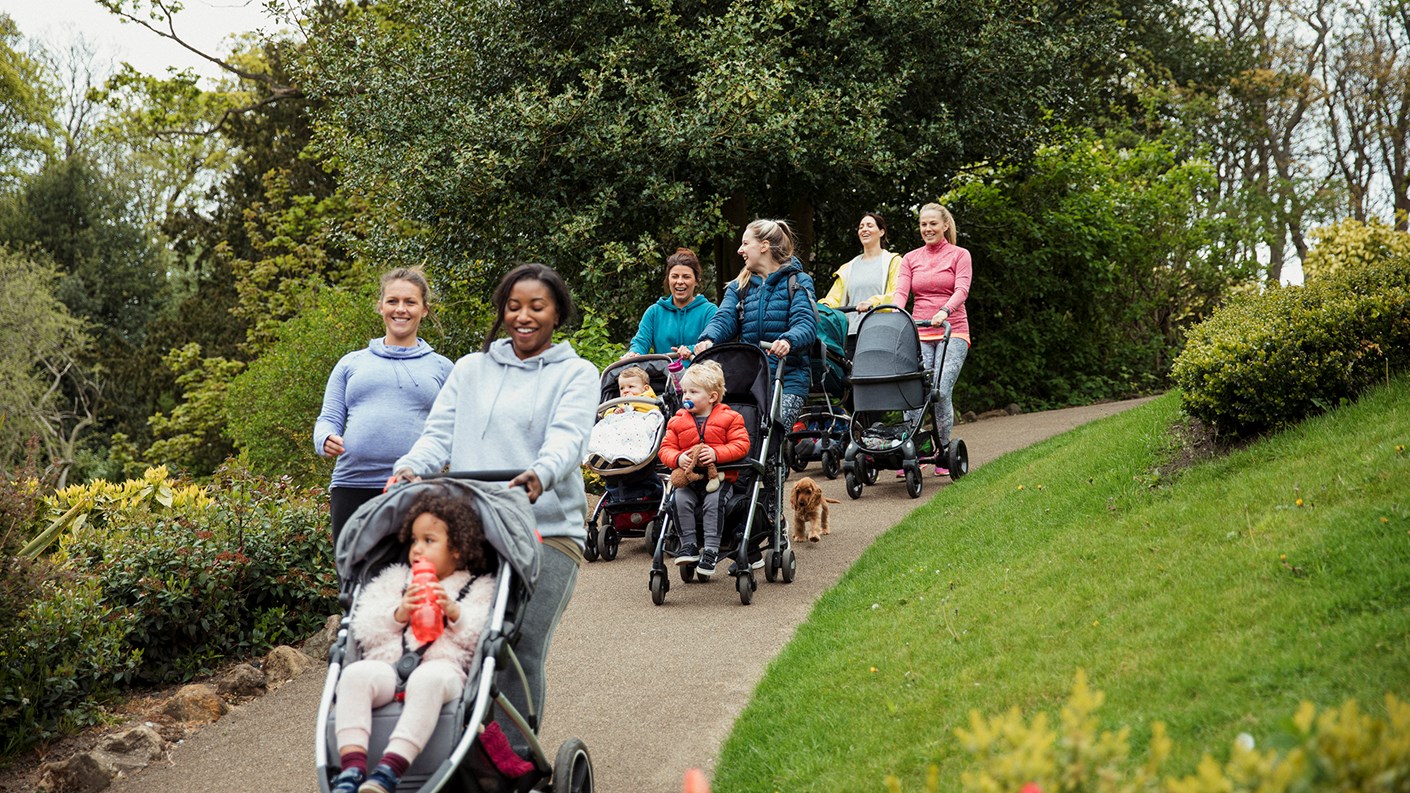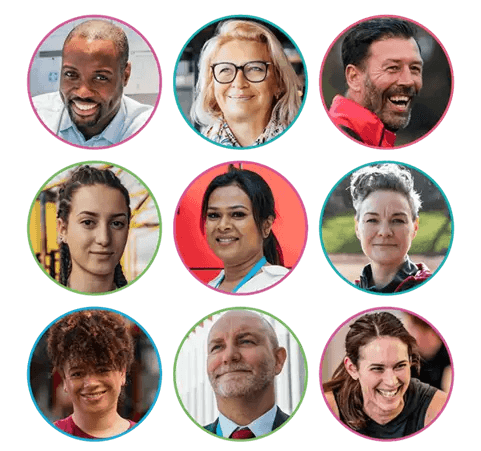Championing inclusive participation in sport and physical activity
Removing barriers for inactive people to participate in sport and physical activity will address many challenges. But how can the sector workforce help?
Physical inactivity in a number of communities continues to be stubbornly high. Disparities in participation are linked to a variety of contributing factors, including social, economic and health inequalities.
With over 2.5 million people unable to work due to long-term health conditions, physical activity professionals have been working hard to address the significant challenge of economic inactivity. The role of the sector workforce is more important than ever in helping to make activity accessible and welcoming to all, and especially those populations that are facing multiple challenges.
Reflecting its pivotal role, inclusive participation forms one of the four key focus themes of the CIMSPA Conference 2025, taking place on 24 September at King Power Stadium, Leicester. The workshop ‘From Inactive to Empowered – Changing Lives’ will explore how sport and physical activity professionals are engaging participants who are facing a range of challenges and offer practical suggestions on what works with specific groups, including the value of lived experience.
Breaking down barriers to physical activity
The mission of breaking down the barriers to physical activity is no small task, and although they are concerning, identifying them is already a step towards improvement. Following this, as a sector we then know what we can focus our support on to create a safe and inclusive environment in which to participate.
Common barriers are cost, accessibility, confidence and cultural considerations. Barriers also vary across gender and age, and although the challenges aren’t gender specific, there are a number that form disproportionately large barriers for women, children and young people, as evidenced by the lower participation rates.
By identifying the barriers, local initiatives can be tailored to community needs and preferences. Through examples like local sports teams, fitness classes and activity cafés, professionals create safe, welcoming spaces where people from diverse backgrounds can come together. In addressing the barriers, these programmes promote inclusivity and trust within communities.
The power of professionals with lived experience
The individuals who are key to driving these changes in participation levels are professionals with lived experience of these challenges. Their backgrounds bring about a crucial element of authenticity and credibility to initiatives, as they have overcome personal barriers themselves. These authentic voices offer a level of understanding for those facing disparity, which in turn builds trust and relatability.
As a sector, we are placing an emphasis on representation to encourage inclusive participation: “You can’t be what you can’t see.”
The initiatives that are being launched because of these individuals are ultimately creating opportunities, leading to more people getting active, improving health and wellbeing and social cohesion.
Reflecting on the contributions of the sector workforce at the end of 2024, Tara Dillon, CEO of CIMSPA said,
“Across the sector workforce in the past year, I have witnessed unprecedented collaboration and the continued drive to inclusivity and opportunity for all.
“From community-based work to national initiatives, professionals across the country have worked tirelessly to adapt to evolving demands of populations and different cohorts of participants while keeping their vision firmly rooted in delivering excellence and impact for their customers.
“In 2024, physical activity professionals are playing a vital role in improving individual health, addressing economic inactivity, fostering community cohesion and tackling anti-social behaviour. Their work extends beyond physical fitness, encompassing mental health support, social inclusion and behaviour change.
“Our professionals are no longer confined to gyms or sports pitches. They are now embedded in healthcare, schools, workplaces and community organisations, addressing diverse challenges such as economic inactivity due to ill health, social isolation and fragmented communities. Their work includes designing and delivering interventions tailored to specific needs, from supporting individuals with long-term health conditions to creating inclusive programmes that bring people together.”
Read more about the impact of our physical activity professionals
Mindful movement
The simplest way to offer more inclusive physical activity opportunities is to provide a range of easily accessible options to entice the broadest possible range of participants. While a session at the gym may be intimidating for many inactive people, there are plenty of existing campaigns offering alternatives.
Dance
Dance is a universal, inclusive form of expression and physical activity. With International Dance Day having taken place on 29 April, it’s a great opportunity to highlight the fantastic initiatives led by those with lived experience:
BBX Fitness provides training in delivering community programmes based on bhangra dance. These programmes bring together people from a range of backgrounds; of different ages, ethnicities and experience; who get active and have fun through group exercise classes. The classes take place in venues that are accessible and because it’s not a traditional ‘fitness class’, participants from all parts of the community find it very approachable.
Earlier in the year, March saw the launch of the ‘Let’s Dance!’ campaign, which is a nation-wide movement of dance organisations, community groups, charities and health professionals with the objective of getting people dancing.
Walking and running
May brings with it Living Streets’ National Walking Month. According to the charity walking gives us an opportunity to unwind, move our bodies and connect with others – and it’s totally free, making it one of the most accessible, inclusive forms of exercise. Community walking groups can help to tackle isolation, improve mental health and build social cohesion.
Upping the pace, the Wellness Warriors have created running groups specifically targeted at people facing significant life challenges including those recovering from addiction, domestic violence survivors and those undergoing cancer treatment. Through a combination of informal activity and peer support, they are engaging with individuals who are benefiting both physically and mentally.
Programmes for young people
Physical activity professionals also play a significant role in addressing anti-social behaviour, particularly among young people. Anti-social behaviour often stems from a lack of positive outlets and role models. Structured physical activity programmes offer young people constructive ways to channel their time and energy, plus a safe alternative to some other interactions that they may become exposed to, providing mentorship, discipline, a sense of belonging and purpose.
Organisations like Coach Core and StreetGames are providing both opportunities for young people to engage in positive activities and offering skills development and training that is leading to successful careers.
Building a more inclusive future
So with all this fantastic work, why are we seeing levels of inactivity remaining stubbornly high, particularly in communities which would benefit the most?
Quite simply – it’s about scale. The impact that we see in those examples highlighted above, while very strong, is not being replicated across enough communities, with enough people. Looking forwards, it is crucial that there is access to training and support for authentic professionals to lead these activities.
Learning, training and career opportunities that appeal to and engage young people, particularly those that may have disengaged with traditional, academic learning or who have faced barriers to finding a career pathway, must be more visible and accessible. How do we do that? We showcase great careers where everyone can find their place, regardless of their perceived ability alongside learning and training, that result in fulfilling job roles.
To enable these opportunities, we need to strengthen our partnerships across health, sport, community and education sectors.
Clare Dunn, Associate Director of Business Engagement at CIMSPA will be leading the workshop based around inclusive participation at the CIMSPA Conference 2025. Speaking on the topic, she shares her thoughts on the importance of access to exercise for the nation:
“Increasing participation in physical activity and sport among under-represented groups is essential. By breaking down barriers to access, we not only promote physical and mental wellbeing, but also address long-standing health and economic inequalities.
“Engaging those who have previously not felt able to engage in activity helps to reduce the burden on health services, improves quality of life and creates opportunities for social and economic advancement – benefiting individuals, communities and the nation as a whole.
“Our sessions at the conference will share the impact of the work of a range of professionals who are delivering activity to support people across communities to get and be more active.”


